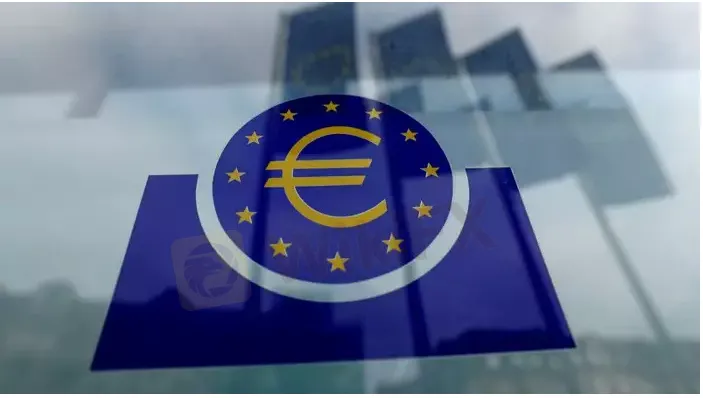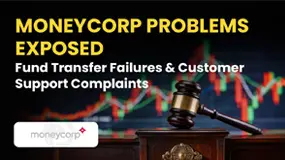Abstract:There’s a weary acceptance among investors of almost inevitable market volatility around Italy’s latest political upheaval – but that’s where the hand-wringing tends to end this time.

Many argue that 2022 has ushered in an era where politics trumps economics again – a period where willingness to pay debts, or even sanctions and legal barriers to those payments, matter as much as the ability to pay and whats in the coffers.
And politics everywhere is about as fractious as it‘s been for decades – highlighted by Russia’s invasion of Ukraine, new Cold War alliances, the ouster of a sitting British prime minister and leadership hiatus in the United Kingdom, and even the prospect of fresh gridlock after U.S. congressional elections in November.
Drama in Rome doesnt seem so exceptional this time around.
Italys latest bout of political theatre – which at worst sees elections coming about six to eight months ahead of schedule – is a familiar affair, albeit amid severe economic headaches from the Russia-related energy shock, surging global inflation and post-pandemic investment priorities.
With his resignation rejected last week by Italys president, Prime Minister Mario Draghi – who took the helm of a national coalition less than 18 months ago to almost universal investor applause – will on Wednesday see if he can keep the show on the road until next May.
Major global banks put anywhere between a 30% and 50% chance of Draghi eventually standing down and triggering early elections this autumn – just as the annual government budget needs thrashing out, as interest rates in the euro zone rise and as a cutoff of Russian gas into winter looms.
So, it is a particularly bumpy time to be going to the polls – not least with the European Central Bank due to announce this week its first rise in interest rates in more than a decade.
And ECB details on its tentatively-titled Transmission Protection Mechanism – aimed at preventing excessive bond yield premia and borrowing spreads between core euro creditors like Germany and more highly indebted periphery countries such as Italy – will be timely to say the least.
While no one doubts that nervy investors can amplify many problems from already contentious budgeting to banks asset quality, the context is important.
Ten-year Italian debt spreads have almost doubled this year to more than 200 basis points, but they remain almost a percentage point below the peaks of 2018 – never mind the 500-basis-point-plus spreads of 10 years ago.
And even with 10-year borrowing rates above 3%, Invesco Multi-asset Investment Director Fabio Faltoni points out that new Italian debt is refinancing bonds with coupons as high as 5% or more. “We would need to see the 10-year yield move north of 4% before Italy starts to refinance itself at a premium.”
In short, few think we are back at some ‘euro crisis 2.0’, where debt sustainability, possible restructuring or euro exit fears lurked.
‘MINISCULE’ CHANCES
UniCredit‘s economic adviser Erik Nielsen describes the chances of Italy’s euro exit as “miniscule” due largely to the better functioning of the euro system – even if an outside chance of debt restructuring within the euro, a la Greece a decade ago, justifies some borrowing premia and pricing of risks.
“The drama was all rather predictable, even if it comes some three to six months earlier than I would have expected,” Nielsen wrote. “Party-political positioning ahead of next years election should not have come as a surprise.”
While a new ECB calming mechanism may be much harder to operate in periods of monetary tightening than the seemingly ever-expanding liquidity of the past decade, the main reasons for investor ease over Italian debt piles are more fundamental.
Stefan Kreuzkamp, chief investment officer at DWS, said hes “cautiously optimistic” about Italy after a decade of political reforms and due to post-pandemic European Union investment plans that put Italy as the biggest national beneficiary.
“For the first time in many years, this has started to boost public sector investment, which in turn – along with the reforms – should support its longer-term GDP growth prospects.”
“Compared to other euro zone economies … Italy is starting to look quite healthy on several measures,” Kreuzkamp added.
At less than 3%, non-performing loans at Italian banks have fallen to their lowest of the euro era while balance sheets at Italian households and businesses look robust, the DWS CIO said, adding that Italy has also been successful in using the period of low interest rates to extend maturities of its debts.
But, crucially, he said debt sustainability hinged largely on keeping the cost of government debt below nominal, not real, economic growth because ‘nominal’ is what mattered for tax receipts. As inflation flattered nominal growth rates to more than 7% over the past year or two, the borrowing profile remains comfortable.
Pictet Wealth Management economist Fred Ducrozet says Italian bonds are bound to suffer some pressure while the politics plays out, but added that Draghi was always scheduled to leave the scene sooner or later over the next nine months anyway.
But Ducrozet also says the politics masks more positive debt dynamics. One of those is the fact that net sales of new Italian government bonds are projected to be negative over the remainder of the year as almost 60% of the sovereign‘s funding has already been completed for 2022. This net funding picture is both a stark contrast with other euro states and a significant boon for Italy over the remainder of the year as the ECB’s net asset purchases wound down this month.
Italian politics and market crises often go together – but be careful of getting carried away.
The author is editor-at-large for finance and markets at Reuters News. Any views expressed here are his own










